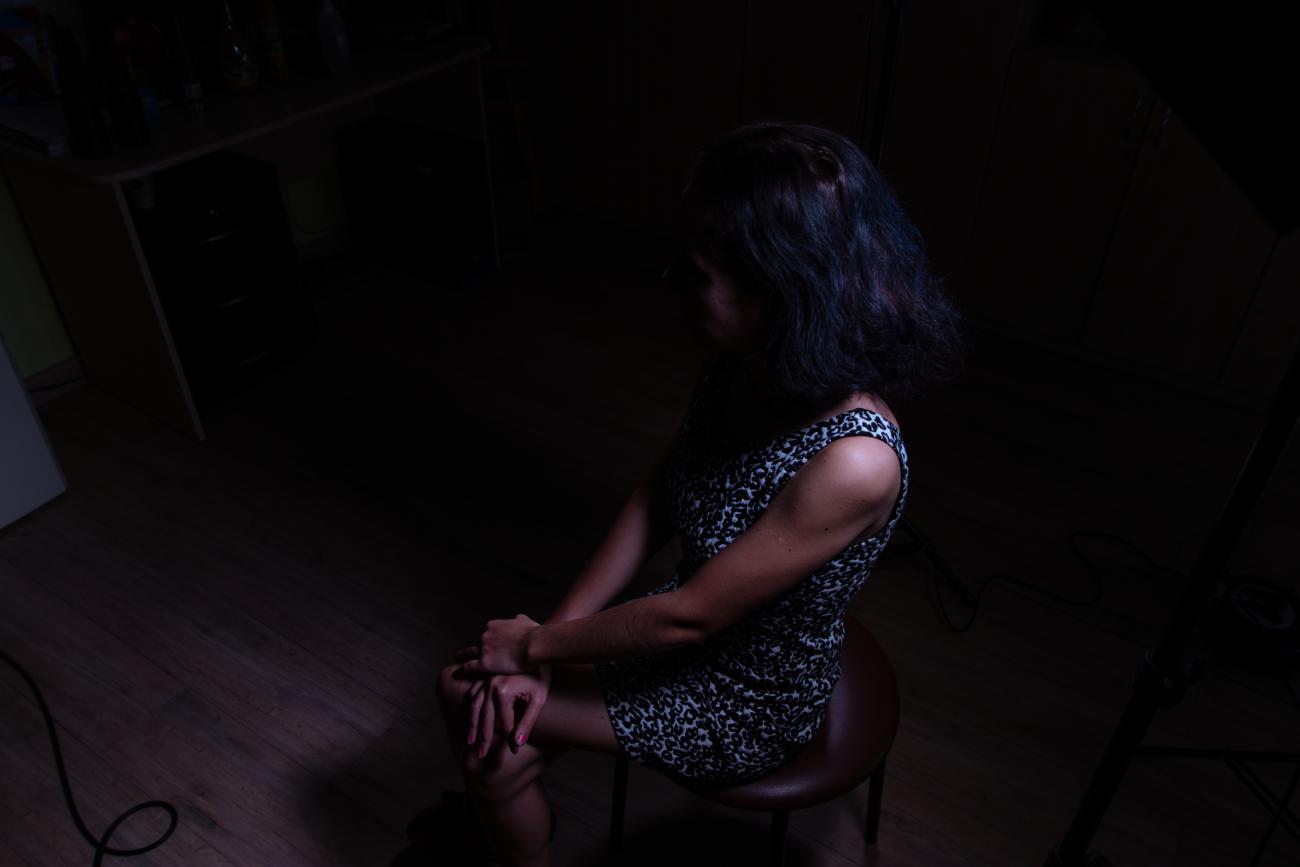"Every day you think about it, wanting you to be alright and protected." How non-governmental organizations in Moldova are helping sex workers combat the HIV epidemic

Anna*, from Bălți in northern Moldova, became involved in the sex industry a few years ago.
A fragile woman with a strong character, she says she started selling sex due to her family's difficult financial situation. "I thought that I could provide for myself here, so I chose this path. I had to raise two children and help my mother," Anna confesses.
The woman explains that her family has experienced need since her childhood. She got married at a young age, had children, but separated from her husband after the birth of their second child. Today, her only source of income is selling sexual services. According to Anna, her work is associated with multiple health risks. "The most dangerous thing in my work is not being set up, robbed, or harmed. It often happens that you agree on one thing with a client, but when you arrive, it turns out to be completely different. Some of my acquaintances are locked in apartments and not released for several days, and no one can help them."
According to Moldovan statistics, sex workers are at a higher risk of HIV infection as well as sexually transmitted infections. Experts estimate that there are around 15,800 sex workers in the country, although the exact number is unknown. According to the Criminal Code of Moldova, engaging in prostitution carries a fine ranging from $100 to $150 or community service. Because of this, the vast majority of those employed in this industry hide their source of income and lead double lives, fearing to seek help.
In order to increase the level of awareness among sex workers about HIV prevention and to strengthen their knowledge in preventing gender-based violence, the non-governmental organization "Union for Equity and Health", located in Bălți, has been providing psychological, social, and medical assistance services for several years now. Anna is one of the recipients of these services. "A friend of mine brought me to this organization. She said that they would listen to me and give advice. And that's exactly what happened. Sometimes we come here just to cry because we can't talk about our problems anywhere else. There are psychologists who work with us, and we can tell them everything and be confident that no one else will hear about it. And we can always ask for condoms, lubricants, sterile syringes, and wipes here. It helps us protect ourselves during work," Anna admits.
The women regularly attends support groups in a safe space where social workers talk about how to protect oneself during work, how often to visit a doctor and get tested. And importantly, they teach how to believe in oneself and one's powers to resist psychological violence and manipulation. "We also want to feel needed. We are not any better but also not worse than others. We are not outcasts, we are just like everyone else. And just like everyone else, we have the right to protection, acceptance and understanding," Anna confirms. According to her, the communication with a psychologist has allowed her to see her future differently. Today, she dreams of finding a profession and changing her line of work. "I would like to work as a cook or work with children. They are my true solace. I forget everything that has happened to me when I see children's eyes."
Along with Anna, another women involved in the sex industry regularly attend support groups. They also have an anonymous online group on social media where they can discuss relevant information, share advice, and, importantly, warn each other about dangers. This group was created as part of a project implemented by the non-governmental organization "Union for Equity and Health". Access to the group is only granted after approval from the administrator, who is also a social worker from the organization.
"During work, you are not protected in any way. If something happens to you, the police are unlikely to help you. You are left to fend for yourself. That's why solidarity among us is important; we are always ready to help each other”, Anna adds to her story. According to Svetlana Plămădeală, the Country Director of UNAIDS Moldova, 88% of the general population in Moldova, according to a recent survey, do not want to live in the same community as female sex workers. This stigmatization has an impact on those involved in this industry.
"This project is about empowering women sex workers: to overcome self-stigma, to have tools to help them access available services, including HIV, and to realize their rights, including such as to live in dignity, without discrimination, to health, education etc. Because no one must be left behind”, concludes Svetlana Plămădeală.
*Note: The name of the heroine has been changed at her request.



